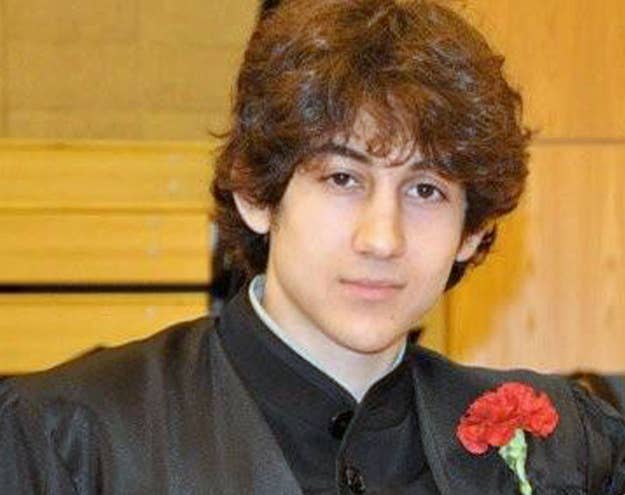
"Terrorism is basically a media phenomenon," says Jerrold Post, director of the political psychology program at George Washington University and author of The Mind of a Terrorist. "You can look at it as a species of psychological warfare waged through the media." Which means that while we know terrorists influence the media, media coverage also influences terrorists.
"The larger terror organizations have, in effect, a VP for media relations," says Post. "We have captured handbooks with instructions on how to gain maximum media attention." He also says bombings in Northern Ireland tended to spike between 5 and 6 p.m. on Thursdays, because 6 was the deadline for Friday's edition of the newspaper — an attack between 5 and 6 was least likely to be analyzed in context, and most likely to be simply reported with a sensational headline.
The history of terrorism and media has lessons for coverage of the Boston bombing too. Ruslan Tsarni's claim that his nephew, bombing suspect Tamerlan Tsarnaev, was a "loser," for instance, is the kind of statement that can cause problems. Post says that during a TWA hijacking, the BBC reported that "there's reason to believe the terrorists' will is slackening and this will be peacefully resolved." The terrorists, perhaps hoping to prove the report wrong, shot the pilot and threw his body off the plane. Of the "loser" comment, Post said, "one can imagine it having an inflammatory effect on the terrorists."
News outlets, of course, couldn't control what Tsarni said. But there are specific steps they can take to keep their coverage from making terrorist situations worse, says Post. First, "don't give the terrorists or their platform an opportunity for an interview." Second, "if there is security information — say, a SWAT team is approaching a building where hostages are being held — you delay the coverage. You don't show that live, because the suspect could be watching."
Post cites the 1977 takeover of the B'nai B'rith International headquarters in Washington, D.C. — media outlets began reporting that some hostages had escaped and were sending food and water to the other hostages. The terrorists, he says, saw the reports and recaptured the hostages.
The question of whether media coverage inspires copycats is a more difficult one. "It does happen," says Grant Duwe, author of Mass Murder in the United States: A History, "but it's one of those things that is difficult to address empirically." The number of terrorists or mass killers who specifically cite coverage of other killings is relatively low. However, he notes that Virginia Tech shooter Seung-Hui Cho referenced Columbine, that some postal workers who committed murder in the nineties mentioned other postal workers who had done so, and that soon after Charles Whitman's 1966 murders at UT Austin, another man killed five people in a beauty salon, saying "he wanted to make a name for himself."
Duwe also notes that media outlets are in some ways responding to the demands of their consumers: "The truth is, in order to survive in a competitive industry like journalism, you have to present news that sells." And "history has shown that the public is generally more interested in crime which is unusual and dramatic and something that is violent and occurs infrequently" — like the Boston bombing. But, he says, that doesn't absolve media outlets from covering murders and terrorist acts responsibly.
Even the word "terrorist," of course, is a fraught one. The decision of whether to label a crime as terrorism or not has become politically controversial (witness recent debates over gun control and Benghazi), and it may have legal implications for how a perpetrator is charged.
And, Post argues, the term itself implies a desire for publicity: According to one common definition, he says, "terrorism is violence or the threat of violence against either innocent victims or non-combatants in order to have an impact on a wider audience." The need for an audience, in this formulation, is a major part of what separates terrorism from other crimes, meaning that even calling an act terrorism, if it means more attention, may help its perpetrators achieve their goals. Perhaps for this reason, some have suggested retiring the word in favor of an alternative like "cowardice."
Terrorism is "an intensely media-specific phenomenon," says Post, and "when [media outlets] uncritically respond they are serving as the agents of the terrorists, the megaphones of the terrorists."
